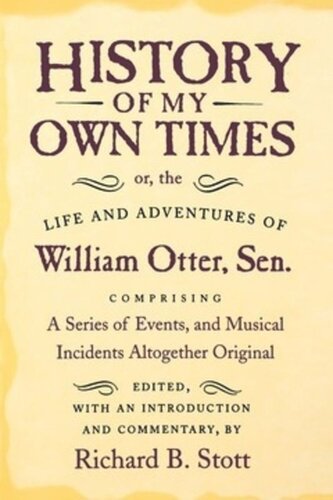

Most ebook files are in PDF format, so you can easily read them using various software such as Foxit Reader or directly on the Google Chrome browser.
Some ebook files are released by publishers in other formats such as .awz, .mobi, .epub, .fb2, etc. You may need to install specific software to read these formats on mobile/PC, such as Calibre.
Please read the tutorial at this link: https://ebookbell.com/faq
We offer FREE conversion to the popular formats you request; however, this may take some time. Therefore, right after payment, please email us, and we will try to provide the service as quickly as possible.
For some exceptional file formats or broken links (if any), please refrain from opening any disputes. Instead, email us first, and we will try to assist within a maximum of 6 hours.
EbookBell Team

0.0
0 reviewsBig Bill Otter was one member of the early American working class not preoccupied with republican principles or the heritage of the Revolution. Big Bill Otter—apprentice, journeyman, master plasterer—was a thug.
Otter's autobiography, first published in 1835, provides a rare and fascinating counterpoint to romantic notions of virtuous, respectable craftsmen in the early republic. His Life and Adventures offer an inside account of the brawling racism common in the early nineteenth century and sharply detail the rowdy male subculture of the times.
Born in England and conscripted into the British Navy during the Napoleonic wars, Otter jumped ship and came to New York City in 1801. He apprenticed as a plasterer and joined an urban gang; later he was a master plasterer, tavernkeeper, slavecatcher, "Jackson man," bigot, town bully, notorious practical joker, borderline psychopath, mayoral candidate, and all-round "jolly fellow."
History of My Own Times is one of the few first-person accounts of a rural artisan in pre-genteel America. The book depicts the ambiguities of race relations in the early nineteenth century, sheds light on its definition of manhood, and conveys a sense of humor very different from today's. Richard B. Stott's introduction an,d commentary place Otter in the context of his times and explore the significance of his autobiography in understanding the social and cultural history of the early American republic.